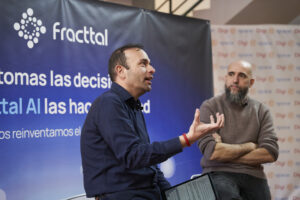Among the many roles that liberal candidate De la Calle has assumed in his life, it was the title of chief negotiator that he will be most known for, alongside his fervent opposition of the finalised peace accord between the Colombian government and the FARC.
The man from Caldas moved to Manizales to make a name as a lawyer and as the 90s came along he grew in stature among the liberal left in Colombian politics, so much so that he was contesting for the presidency during as the last major narcotraffic battles were being fought.
His initial conflict for the leadership on the left came against Ernesto Samper but he wasn’t victorious in that 1993 battle, taking instead the vice-President position under Samper for 3 years. His early efforts were very much behind the scenes, for example, his instrumental electoral reforms that allowed for the reintegration of a number of demilitarised groups including the M-19 PRT, EPL and Quintin Lame.
His eventual resignation in 1996 lost him the respect of many of Samper’s followers and he has since been trying to regain the support of the Colombian left. However, he has still managed to wrest a diplomatic post from his superior, assuming the mantle of Ambassador of Colombia to the United Kingdom.
And then September 2012 came, along with the role that would burden history itself; he was installed as chief negotiator for the government by President Santos tasked with bringing about a peace deal with the FARC that would end half a century of conflict with the rebel group. Handed a historical moment, de la Calle became the government’s face which ended in the peace accord that earned Santos the Nobel Prize, but his chief negotiator much of the blame for its failings. De la Calle eventually called for the accord to be renegotiated.
His most recent battle for the liberal leadership saw him ward off Juan Fernando Cristo to take the lead role for the Liberal Party. His platforms for the 2018 all lean towards the marginalised, be it marching for environmental rights or aiming to add up to a million jobs a year, as well as aiming to ensure equal access to justice and healthcare.
As fate would have it, he is trailing in the most recent polls to Gustavo Petro, a former member of M-19 that his reforms would have helped rehabilitate back into mainstream political life. The left may be salivating at their options this time round, but if they are for Humberto ‘from the block’ they have yet to show it as both Petro and more centrist candidate Sergio Fajardo seem to be winning the heart of the center at present.
Runnning on the slogan of ‘Yo soy de la Calle’ (I’m from the block), is yet to resonate among working class voters. A poet, diplomat and a lawyer, de la Calle is yet to choose which identity to choose from, be it the lyrical, diplomatic or adversarial, that will win him a surge in public support.


